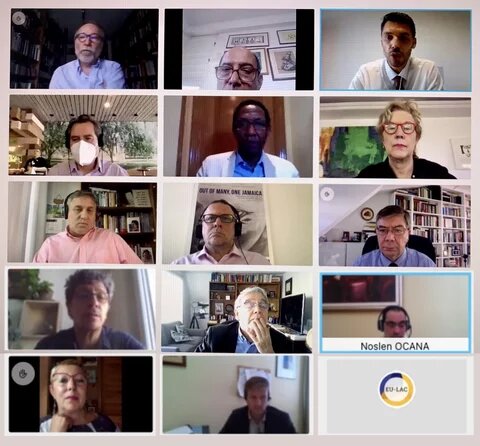The EU-LAC Foundation together with the Fundación Carolina organised the second Workshop of the joint project "Network of Association Agreements between the European Union and Latin America and the Caribbean", which took place on June 3.
The two foundations have agreed to carry out a comprehensive study on the network of Association Agreements between the European Union and Latin America and the Caribbean. As a result of this study, a series of virtual workshops are held from 20th of May to 1st of July 2021 with the participation of the main stakeholders in each of the Association Agreements (governments, officials from both regions, experts, parliamentarians, private sector, and civil society organisations).
The second workshop presented the progress of the study carried out on the Political Dialogue and Cooperation Agreement between the European Union and Cuba with a presentation by Prof. Antonio Romero (Professor at the University of Havana). The main objective of this document is to assess the Agreement between Cuba and the EU in its three years of validity and the dynamics of political, trade, investment, and cooperation relations between the two parties. After that, the attendees were invited to join a productive discussion of the analytical document and its findings. Those present agreed on the particularity of the Cuban context and reaffirmed that the bilateral Political Dialogue and Cooperation Agreement (PDCA) between the European Union and Cuba marks a new phase in bilateral ties between the signatories.
The initiative aims at reviewing the mapping of the association agreements between both regions to identify to what extent their ratification, modernisation, and full use can contribute to a better international insertion, in economic matters and the international relations of each party. The study also looks at the transitions that must be undertaken in the EU and Latin America in aspects such as sustainable development, digitalisation, and social cohesion.
